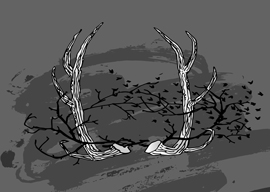
August 07, 2014

Source: Shutterstock
Lately I”ve been hearing more and more dribs and drabs of the depressing controversy over whether literature has any empire left over pop culture. Well, that depends on what you mean by “literature.”
Up till the middle of last century, it was still fashionable to write realist, overtly literary fiction in a spirit of lively generosity and smart entertainment; think of Kingsley Amis, Waugh, even Henry Miller. But since writing workshop culture entrenched its rancid self in 1960s academia, the genre of “literary fiction” has been ground into a liberal-bourgeois paste of factory solipsism. This modern litfic is ignored by the public, deservedly so for the most part. An afternoon of hernia surgery would be nicer than reading a dominant “serious” author like Lorrie Moore.
The less academically prestigious genres, on the other hand”fantasy, sci-fi, horror fiction”continue to have an influence over pop culture, whether or not you believe me when I say their last 40 years of development should have earned them more credit in intellectual circles. (Chris Ware, a literary cartoonist if there ever was one”though he is lively, as graphic novels still resist the scourge of modern adulthood”told a mutual friend I was “insane” for taking science fiction too seriously.)
Some of this cultural influence is obvious. The grand cinematic project of the Lord of the Rings trilogy was all the more satisfying as it coincided with a survey of the British reading public that sent academics into a foaming tizzy, as the commoners voted Tolkien’s fantastical works their all-time favorites (while Joyce and Woolf failed to make the top 200).
Other influences are less overt, and in fact flirt with plagiarism.
As HBO’s hit crime series True Detective gears up for a second season, writer-creator Nic Pizzolatto is gradually racking up flak over how slow he was to admit that he borrowed heavily from the Bram Stoker Award-winning horror author Thomas Ligotti.
The show’s most striking character”a hard-boiled, antinatalist detective named Rustin Cohle, who’s haunted by his past as an overenthusiastic narcotics officer”is a font of lightly paraphrased and uncredited quotes from Ligotti’s first work of nonfiction, the 2010 philosophical and literary treatise The Conspiracy Against the Human Race.
In Conspiracy Ligotti, in turn, had cribbed with credit from philosophers like Zapffe and Schopenhauer to help him analyze horror writers like Algernon Blackwood. But the pithily misanthropic epigrams that Pizzolatto nicked for the show are all the fruit of Ligotti’s talent for distilling complex arguments.
When the Wall Street Journal grilled Pizzolatto about his influences, he said the allegedly plagiarized lines were “specifically phrased in such a way as to signal Ligotti admirers.”
This, however, was after he”d been dinged for evading the Ligotti question in an earlier interview, according to Mike Davis and Jon Padgett at Lovecraft eZine. Davis and Padgett did their homework: the mounds of evidence they gathered makes it sound like Pizzolatto picked on Ligotti because he figured he was obscure enough to safely steal from.
Admittedly, Pizzolatto’s well-done show turns Ligotti’s menacing atmospherics into a compelling plot and vibe all its own, and the plagiarism controversy has given Ligotti some press. But not nearly enough has been made of the loans for my taste, especially since the creditor is a writer whom commercial success has eluded (and who has not, to my knowledge, been invited to contribute to the show in a voluntary or paid capacity).
In the “signal” interview Pizzolatto made sure to distance himself safely from Ligotti’s anti-humanist philosophy, insinuating the latter is a mere nihilist; this is not heroic, but nor is it surprising, since even rabid fans of Ligotti’s sordidly clever fiction have tried to do the same.
Ever since The Conspiracy Against the Human Race was published, there’s been debate over whether a beloved storyteller has the right to step out from behind the curtain and inflict his conscious thoughts on us at all.
Ligotti dares to voice the idea”enraging to most people, regardless of the post they claim on the political spectrum”that life itself is malignant, full of (to quote him directly) “pernicious things that compromise the sanity of anyone who learns of their existence.”